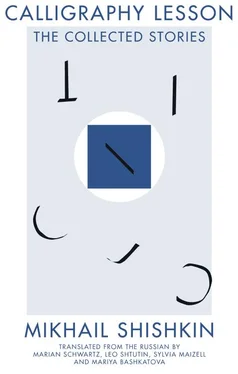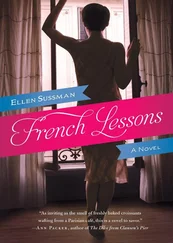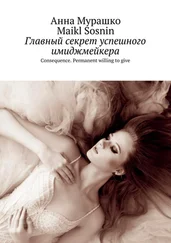Mikhail Shishkin - Calligraphy Lesson
Здесь есть возможность читать онлайн «Mikhail Shishkin - Calligraphy Lesson» весь текст электронной книги совершенно бесплатно (целиком полную версию без сокращений). В некоторых случаях можно слушать аудио, скачать через торрент в формате fb2 и присутствует краткое содержание. Город: Dallas, Год выпуска: 2015, ISBN: 2015, Издательство: Deep Vellum Publishing, Жанр: Современная проза, на английском языке. Описание произведения, (предисловие) а так же отзывы посетителей доступны на портале библиотеки ЛибКат.
- Название:Calligraphy Lesson
- Автор:
- Издательство:Deep Vellum Publishing
- Жанр:
- Год:2015
- Город:Dallas
- ISBN:978-1-941920-02-2
- Рейтинг книги:4 / 5. Голосов: 1
-
Избранное:Добавить в избранное
- Отзывы:
-
Ваша оценка:
- 80
- 1
- 2
- 3
- 4
- 5
Calligraphy Lesson: краткое содержание, описание и аннотация
Предлагаем к чтению аннотацию, описание, краткое содержание или предисловие (зависит от того, что написал сам автор книги «Calligraphy Lesson»). Если вы не нашли необходимую информацию о книге — напишите в комментариях, мы постараемся отыскать её.
Calligraphy Lesson — читать онлайн бесплатно полную книгу (весь текст) целиком
Ниже представлен текст книги, разбитый по страницам. Система сохранения места последней прочитанной страницы, позволяет с удобством читать онлайн бесплатно книгу «Calligraphy Lesson», без необходимости каждый раз заново искать на чём Вы остановились. Поставьте закладку, и сможете в любой момент перейти на страницу, на которой закончили чтение.
Интервал:
Закладка:
“I’m pulling you by the half-belt and all I can think is, what if it snaps?”
Maidenhair , written in Zurich and Rome, also actually took its rise from Mum, or more precisely from her diary, which she gave me before her last operation. A thick oilskin notebook, its yellowed pages covered with pencil notes—written not, I may add, in the “clinical” hand I was used to, but in a cosier, more girlish one. Mum began it when she was in her final year of school and continued writing in it for several years as a student. This was the end of the forties and the very beginning of the fifties.
I remember her telling me about the persecution of the “cosmopolites” in her institute, during which its best professors disappeared. But there’s no mention of that in the notebook. It’s a most ordinary girl’s diary: yearning for someone to love, she listens anxiously to her heart—has the feeling already come over her, is it the real thing? And it radiates a great deal of happiness. From books she’d read, from girlfriends, from the sun outside the window, from the rain. Its pages are awash with the unthinking youthful confidence that life will give you more than you asked of it.
It contains no traces of the fear that had gripped the country. As if there were no denunciations, no camps, no arrests, no queues, no penury.
I read it then and marvelled at the naivety of that blind girl who could not see what she had fallen into.
That girl was born into a prison nation, into darkness, yet she still looked upon her life as a gift, as an opportunity to realise herself in love, to give love, to share her happiness with the world.
When I found out that Mum’s diary, too, had perished in the fire, I felt its continued grip on me. And at some point I realised: no, this was not the naivety and folly of a silly young girl who had failed to understand what was going on around her, this was the wisdom of the one who has sent, does send and always shall send girls into this world, no matter what hell we’ve turned it into.
The world around is cold and dark, but into it has been sent a girl so that, candle-like, she might illuminate the all-pervasive human darkness with her need for love.
Mum loved to sing, but knew she had no voice, and felt embarrassed. She’d sing when there was no one to hear her. Most often she sang what she used to listen to as a child. One of her favourite singers was Izabella Yurieva. My father had some old recordings of her romances, and would often put them on when we were still living together in the basement on Starokonyushenny Lane and in Presnia.
I was convinced then that all these voices from old records belonged to people long since dead. Stalin and Ivan the Terrible were much of a muchness to me—the distant past. Then it suddenly transpired that Izabella Yurieva was still alive, her records started being re-released and she began making television appearances. You could even go and see her at the House of Actors. I never did get to meet her while she was still alive.
When the singer died, I was staggered to learn that she’d lived a hundred years—she was born in 1899 and died in 2000—the entire monstrous, accursed Russian twentieth century.
I wanted to write about what I had felt and understood thanks to Mum’s diary. I started writing about Bella. The result was Maidenhair .
Little of the singer’s life remains—there are no diaries, no memoirs, leaving us with no more than a spare outline of her life story. In those years people were afraid of their own past—it was impossible to tell what might later put you in mortal danger. Danger might spring from any source: past meetings, things said, letters. People would destroy their past, would strive to rid themselves of it.
I wanted to restore her obliterated life to her. I began writing her reminiscences and diaries.
As far as possible, it was important for me not to fabricate anything. For example, I would pick out real-life accounts from the memoirs of people living in pre-revolutionary Rostov, restoring to my Bella her actual teachers at the Bilinskaya Gymnasium in Khakhladzhev House on Taganrog Prospect, the clerk in the Joseph Pokorny stationary shop on Sadovaya Street, where she bought her exercise books and quills, and that gymnasium porter who, having read “Kholstomer,” bequeathed his skeleton to an anatomical cabinet.
Detail by detail, I restored her vanished life history to her.
She never did anything but sing—like that grasshopper from the fable. Only in real life the survival of the ants building that Babelian ant-hill up to the heavens and turning into camp dust depended no less on her singing than on supplies for the winter. She was the proverbial candle that illuminated, however faintly, their darkness. She sang to the slaves about love. She helped them preserve human dignity.
I was eager to restore her life to her, if only in a book—and there’s no other way in any case.
Of course, much in the life of Izabella Yurieva wasn’t the same as in my Bella’s.
But I know that when she and I finally meet, Izabella Danilovna shall forgive me and say:
“Don’t worry yourself! Everything’s fine. Thank you kindly!”
And now I return to the rest home on the Volga, where the woods are full of wild strawberries and everyone is still alive.
I see images from that time:
The herringbone brick path leading to the canteen.
The defiled nearby forest, strewn with scraps of paper, bottles, greasy newspapers.
The Volga in a downpour, white with frothy foam, as if there’s laundry being done.
We’ve been mushroom picking in the faraway forest and are taking the track homewards, but our eyes still can’t stop searching, and rove about the track verges.
And now, having gone for a morning swim in the Volga, Mum and I are coming back to our little house. We walk barefoot over the wet moss, dew seeping up between our toes. We climb the porch steps, already warmed through by the sun, and Mum draws my attention to our rapidly disappearing tracks:
“See, I’m flatfooted!”
Our room on a hot day: mushroom dampness, the curtains are held together by a pin, the wallpaper’s curling and bulging, and Mum closes the creaky cabinet door, sticking a piece of cardboard into the crack so it doesn’t open.
And now I see the boozer in the nearest town—Uncle Vitya’s popped in for just a moment, and there we stand, Mum and I, waiting a good half hour for him in the heat, and still he won’t come out.
I kept waiting for Uncle Vitya to ask me about Dad, but he never did, right up until the very last moment.
The night before we left I woke up with the thought that someday Mum would die. I lay there in the darkness and listened to her puffing in her sleep, snoring herself awake, then, after much tossing and turning, puffing away once again. I remember this acute sense of pity which wouldn’t let me get back to sleep. It was strange somehow—she lay there in the bed next to mine, very much alive, and at the same time it was like she’d already died. Also, I really needed the loo. The houses had no toilets. During the day you had to go to a rather unpleasant establishment that stank to high heaven of chlorine, but at night I’d just find a spot somewhere near the porch.
I got up quietly and went out, carefully closing the door behind me.
Damp, mist, cold night air. The cusp of daybreak.
I stopped at the nearest bush. Steam rose from the stream.
And suddenly something happened to me. As if I’d stepped from the unreal into the real. As if, like a lens twisted into focus, all my senses had been sharpened. As if the whole world around me had donned my skin, chilled in the August morning frost.
I looked around and couldn’t understand what was going on: after all, I’d passed by this spot on so many occasions—and took notice of nothing; but now I saw, as if for the first time, that honeysuckle bush, and this rowanberry tree, and the towel forgotten on the washing line.
Читать дальшеИнтервал:
Закладка:
Похожие книги на «Calligraphy Lesson»
Представляем Вашему вниманию похожие книги на «Calligraphy Lesson» списком для выбора. Мы отобрали схожую по названию и смыслу литературу в надежде предоставить читателям больше вариантов отыскать новые, интересные, ещё непрочитанные произведения.
Обсуждение, отзывы о книге «Calligraphy Lesson» и просто собственные мнения читателей. Оставьте ваши комментарии, напишите, что Вы думаете о произведении, его смысле или главных героях. Укажите что конкретно понравилось, а что нет, и почему Вы так считаете.












